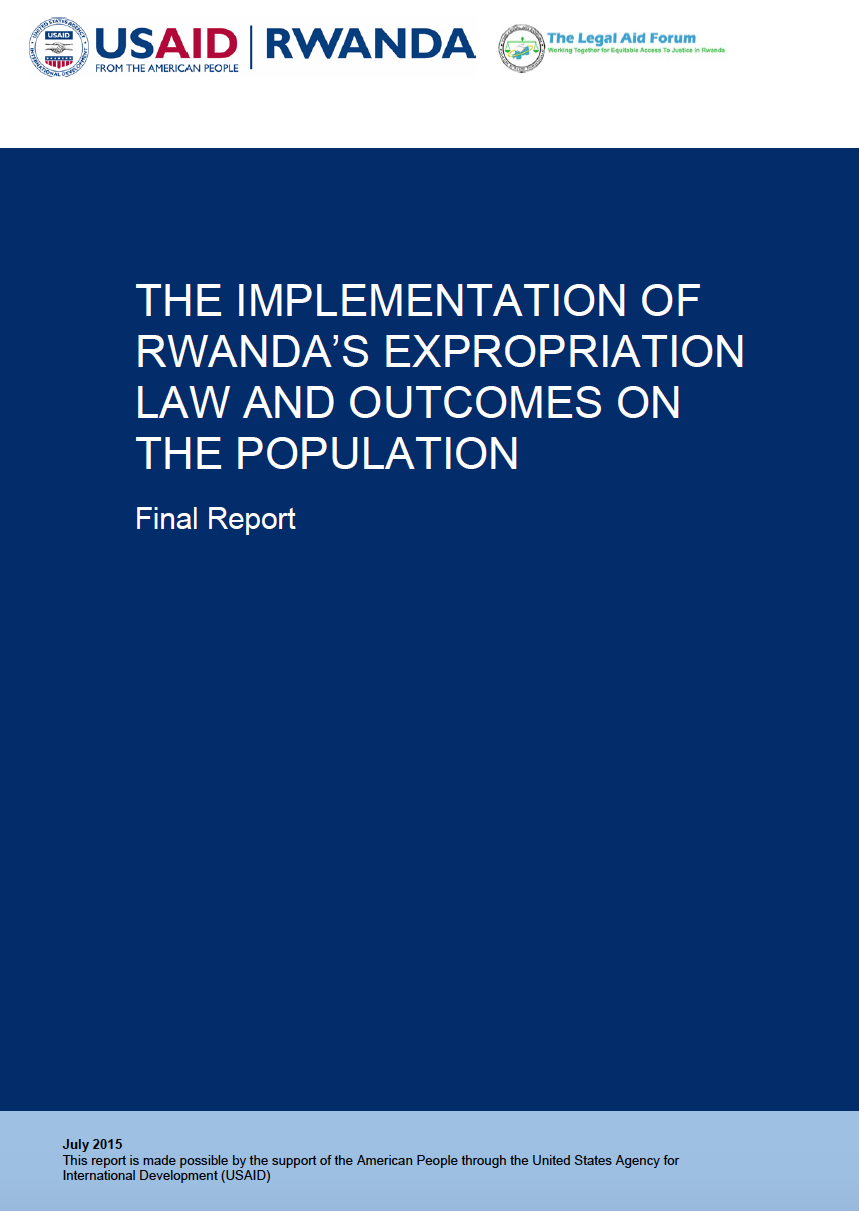Resource information
Rwanda is developing at a remarkably rapid pace, and with that development has come a
multitude of corresponding changes to the orientation and use of land throughout the country.
In light of these changes, law n°18/2007 of 19/04/2007 relating to expropriation in the public
interest was adopted to provide clear procedures for the government to follow in the taking of
privately-owned land for other uses deemed to be in the public interest.
This law provides procedures for notice to affected landowners, the determination of public
interest, and valuation of land, including how to challenge valuation when a landowner does
not agree with the valuation provided, and also provisions for timely payment of
compensation and damages if compensation is not paid on time. These are all important
principles in line with international standards and best practices for expropriation. The
implementation of the law, however, has caused some criticism and concern. This research
seeks to address those concerns by carrying out systematic quantitative and qualitative
analysis about the implementation of the expropriation law and its outcomes on the population
of Rwanda, and in particular expropriated households.
The two major themes of the research are: 1) the implementation of the law from the
procedural perspective; and 2) assessing the effects of expropriation law and policy on
expropriated households. The procedural rights examined in the research include aspects such
as whether the concerned communities were involved in determining the “public interest”
nature of the project, and whether expropriated households received sufficiently detailed
notice at the proper time to adequately inform them that their properties would be
expropriated. Procedural rights also concern whether expropriated individuals were given a
fair valuation of their property by impartial valuers, and whether they had an opportunity to
challenge aspects of the process they believed violated their rights, as well as whether
compensation was provided in the proper time, and to all rights-holders. The assessment of
socio-economic impacts of expropriation, the second prong of the research, aims to determine
what types of impacts, both positive and negative, expropriation may have had on
expropriated individuals’ lives and the communities in which these projects have been
implemented. This includes both objective analysis (changes in income, etc.), and subjective
analysis (changes in attitudes, perceptions, etc.).
In summary, the data obtained through this study revealed that insufficient and delayed
compensation were the most important issues to property owners, government stakeholders,
and expropriating institutions, which suggests the possibility for collaborative efforts to
decrease delays and improve the integrity of the valuation process. The research also measures
the price paid per square meter of expropriated land, revealing expected variations based on
the character and location of the land. However, unexpected variations emerged based on the
expropriating entity paying the compensation when controlling for the character of the land,
project type, and other potentially confounding factors. These arbitrary differences in land
values can be addressed by improving the independence of the valuation process and
providing improved channels for citizen involvement in the valuation process.

